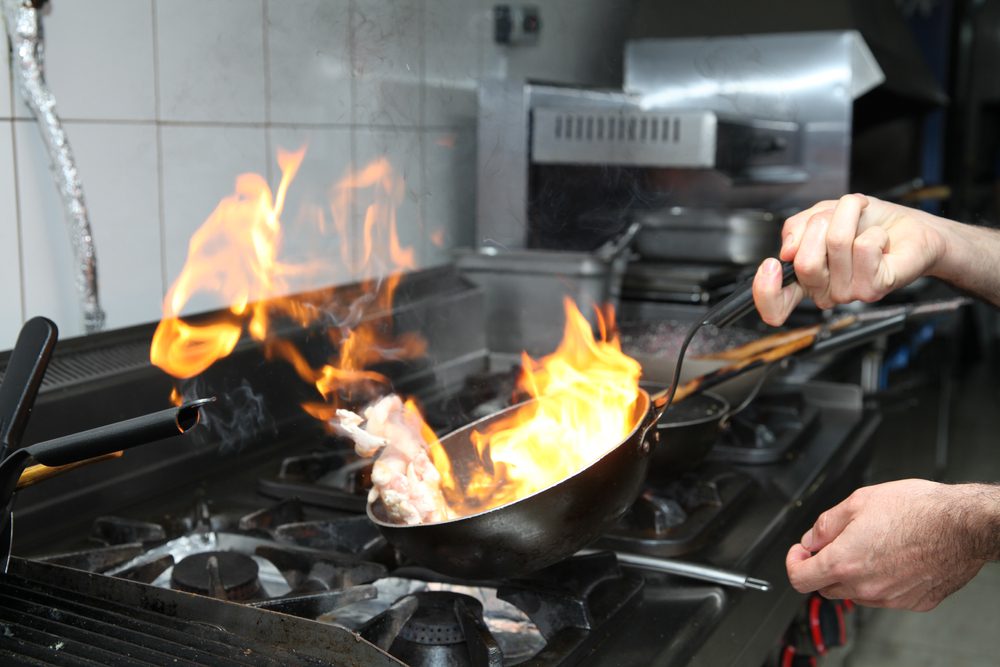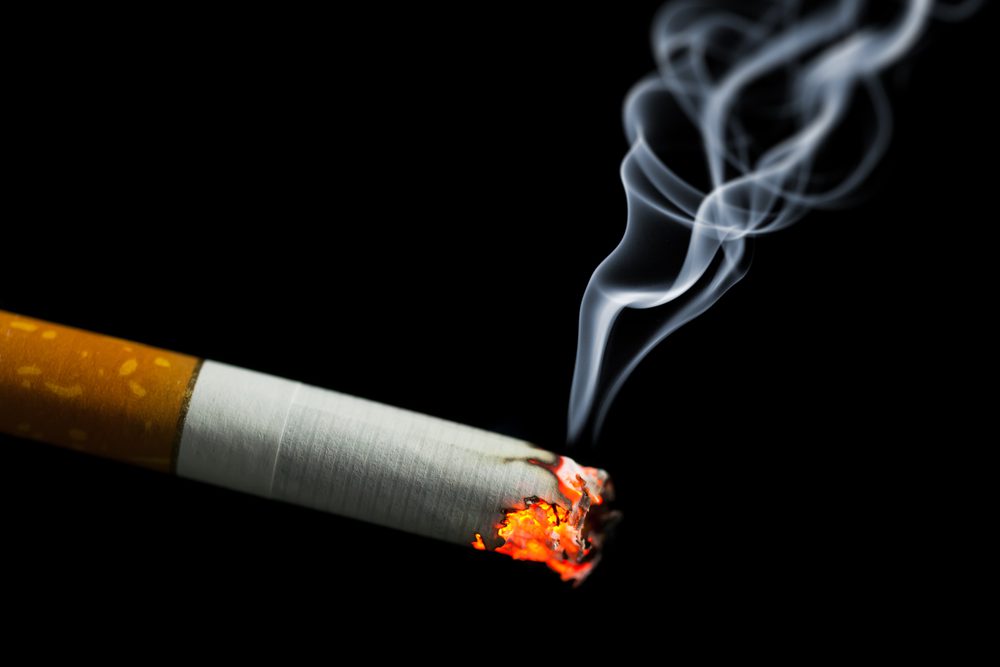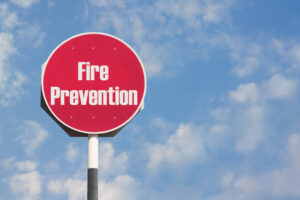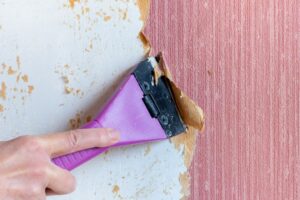One of the most terrifying things about unintentional fires is the fact that they are capable of spreading very quickly, are unpredictable, and can burn down a house so fast that you don’t even have time to do something about it. They put everyone that happens to be in the house at that time in danger and can also cause a lot of material damage. Sometimes we can talk about hundreds, if not thousands, of dollars!
If we look into the statistics that were released by the National Fire Protection Association (NFPA), we can see that there are some important numbers in the “home fires” section. More than 350,000 home fires start in the United States each year, which results in over 2,600 fatalities. Experts say that there are a lot of causes for house fires, but the most common ones are specifically these two: fires that are started by chemical processes or those started by heat that burns combustible materials.
Your home is usually a place that is filled with materials and things that can immediately catch fire. If you want to keep your family and home safe, you’d better keep reading the following list of the most common causes of house fires.
Electrical Fires
Faulty electrical wires are known to be one of the main causes of concern in the case of house fires. The EFSi claims that electrical installations that are not done properly are often the culprit and cause approximately 51,000 fires each year with a grim statistic that states the following: 500 fatalities, 1,400 injuries, and $1.3 billion in property damage.
More than this, it is also reported that electrical issues are the main cause of roughly 10% of all residential fires, and sadly, these fires are frequently fatal, accounting for about 18% of home fire-related fatalities.
The problem with electrical fires is that they frequently start in obscure rooms, most of the time at night when everybody in the house is sleeping. They also do a lot of damage before anyone realizes what is actually happening.
Our best piece of advice is that if you plan to move into an older home, please call a licensed electrician that can properly examine your wiring. This is by far the best way to avoid further problems and, most importantly, potential house fires.
More than that, if you are unsure about what you are doing, avoid making any repairs or upgrades on your own. Always consult with a specialist first!

Cooking-Related Fires
You probably already know, but cooking can sometimes be dangerous. There is a very good chance that you will start a fire if you accidentally overheat grease in a pan or in the oven. It is true that for this to happen, you need some specific conditions. The grease should be heated to at least 600 degrees Fahrenheit in order to catch fire. Also, it is very hard to put out grease fires after they have already started.
However, overheated grease is not the only danger that lurks in your kitchen. You probably have some appliances, such as toasters and electric griddles. They are not the safest, and you should never leave them unattended. Also, after you are done with them and you want to put them away, make absolutely sure that they are cool when you touch them. You should also be careful and remove any crumbs that are left inside them because they can accumulate and catch fire.
Do you want to know how to put out small fires? The first thing that you could do is to switch off the heat of the stove, and then you would carefully cover it with a metal lid. This should work very well in the case of small fires. You can also try sprinkling some salt or baking soda on it. Even if these methods are good when you don’t have any other alternatives, we still recommend you buy a class B or K extinguisher.
If you are dealing with a major fire, don’t attempt to extinguish it. Immediately call the fire department and wait for them to do the job since it is very dangerous. Also, keep in mind that putting water on a fire caused by hot grease will just cause it to burst and spread all over your kitchen.

Smoking
You’ve probably heard of people falling asleep with a cigarette and then having their house catch fire. This is a pretty common problem. Actually, according to some statistics, smoking-related fires cause more than 1,100 injuries and almost 600 fatalities per year in the United States. Yet, only 5% of house fires are caused by cigarettes.
As you might expect, you should never smoke in bed since it can be quite dangerous. You can have a lot of things that can ignite around your bed, such as the blanket, the carpet, or even your clothing.
In order to reduce the chance of fire, if you want to smoke, we advise you to do it outside or over a sink while using an ashtray.
Heating Appliances
Heating appliances are to blame for roughly 12% of all house fires. From 2014 to 2016, the Consumer Products Safety Commission (CPSC) reported that space heaters contributed to almost 25,000 fires and more than 300 fire-related fatalities in the United States.
This usually happens because sometimes blankets, curtains, or other textiles are kept too close to space heaters and they catch fire.
Be careful and never leave your house while the heater is still on! Even though the ones that are fabricating them try to attach clear instructions that caution against unattended usage, many people still leave their homes without switching them off.
Chemical Fires
Chemical fires are a frequent cause of home fires, despite the fact that they often occur in industrial or commercial settings. When gasoline and other petroleum liquids’ volatile vapors reach their flash point or come in contact with an open flame, residential chemical fires most frequently result.
The reaction of chemicals with oxygen in the air to generate enough heat to reach a flashpoint and burst into flame is known as spontaneous combustion and is another prevalent type of chemical fire.
Keep all fuels, chemicals, and other substances in their designated containers and in cool, dry places. The gas or other fuels used to run lawn equipment are typical sources of fires of this type.
Oily rags that spontaneously ignite are another factor that contributes to chemical fires. After use, never store rags that have been exposed to chemicals or oil. Additionally, never stack them together because the fumes’ reaction with oxygen might spontaneously produce heat. Spread out oily rags outside until the oil has evaporated. They can be cleaned and reused after fully drying.

Christmas Trees
Many families have a Christmas tree tradition, but there are certain risks involved. By the end of the Christmas season, real evergreen trees could pose a very real risk of catching fire because of their tendency to dry up over time. The tree may catch fire with just a hot light or spark, and these can spread extraordinarily quickly, rapidly destroying an entire room.
Although artificial trees with vinyl or plastic branches are safer in this aspect, an electrical fire caused by a faulty cable in the Christmas lights string or an overcharged outlet is still a possibility.
Whether the tree is real or artificial, you should never keep the Christmas lights on while you are away from home or while you are sleeping. Regularly inspect natural trees to make sure they aren’t too dry. To keep the tree from drying out to the point of tinder, make sure that the water tank is kept full.
Sometimes people put holiday lights in other parts of the house, including around windows. In addition, if these light strings are faulty or handled incorrectly, they may ignite fabrics such as drapes or other textiles.
You should also check out: 5 Home Upgrades You Should NEVER Do By Yourself















